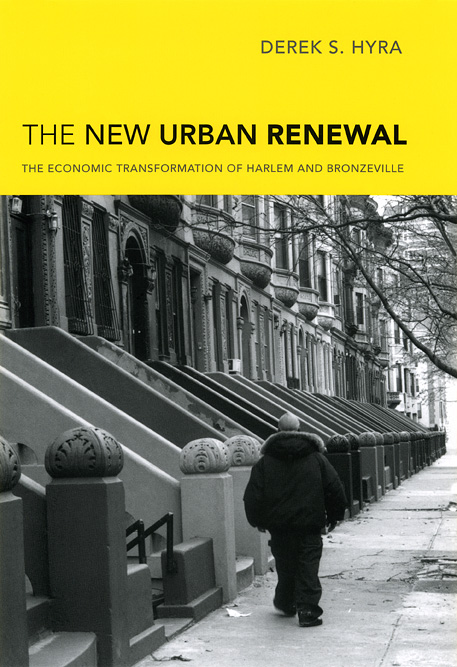Derek Hyra on HUD and the housing crisis
 To mark HUD’s birthday, we asked Derek Hyra, author of The New Urban Renewal: The Economic Transformation of Harlem and Bronzeville, to reflect on the future of urban development in the midst of the housing crisis:
To mark HUD’s birthday, we asked Derek Hyra, author of The New Urban Renewal: The Economic Transformation of Harlem and Bronzeville, to reflect on the future of urban development in the midst of the housing crisis:
September 9 marks the birthday of the U.S. Department of Housing and Urban Development, which was established on this day in 1965. And HUD’s headquarters, the Robert C. Weaver Federal Building, is approaching its fortieth anniversary. These milestones, though, probably won’t be greeted with unqualified celebration. Once an embodiment of the Great Society’s reforming spirit, HUD has developed such a reputation for inefficiency, corruption, and incompetence that one prominent urban scholar recently recommended dismantling the agency and tearing down the Weaver building. But HUD doesn’t need to be razed. It needs to remodeled, rehabilitated, and reinvigorated with Presidential leadership and Congressional reform.
HUD and its affiliated local authorities have several critical responsibilities. The agency houses one million tenants in public housing and assists another 1.8 million households with rent subsidies. In addition to deploying $4 billion each year to cities and counties across the nation, HUD also houses the Federal Housing Administration, which provides federal guarantees on affordable mortgages.
As the HUD building enters its fifth decade, the agency has the potential, with adequate resources and support, to achieve where the private market has failed. This year’s Housing and Economic Recovery Act gives the FHA authority to guarantee $300 billion in subprime loans and deploys an additional $4 billion in grants. This monumental housing act has reinvigorated HUD and might help pull the country out of its current credit crisis and keep nearly 400,000 families in their homes.
Additional reforms are needed in HUD’s major programs. Public housing and the voucher program need to be retooled with effective strategies to maintain viable public housing and to prevent the concentration of vouchers recipients in declining communities. Increased oversight is also needed to ensure that local housing authorities effectively and appropriately spend housing and block grant resources.
So let’s not foreclose on HUD. With proper reform and strategic funding, HUD has the potential to once again be a model, and remodeled, federal agency that assists the nation with its affordable housing and community development needs.
(See also an excerpt from Robert Clifton Weaver and the American City: The Life and Times of an Urban Reformer by Wendell E. Pritchett, a biography of the first secretary of HUD—as well as the first African American cabinet-level officer in the federal goverment.)